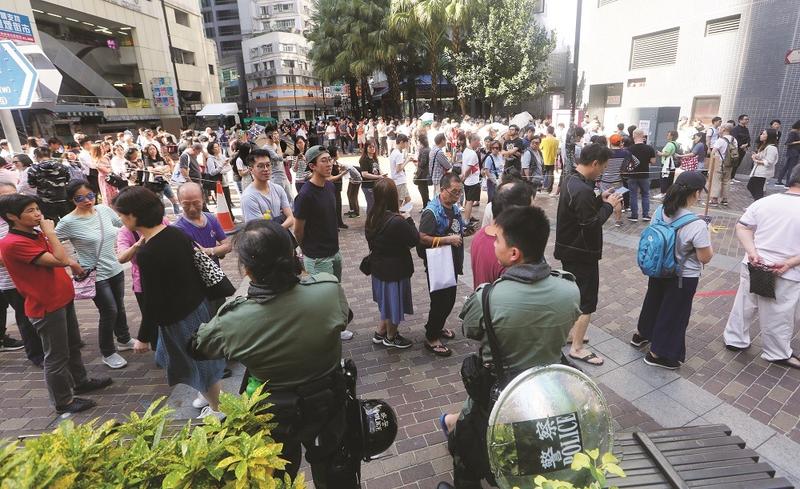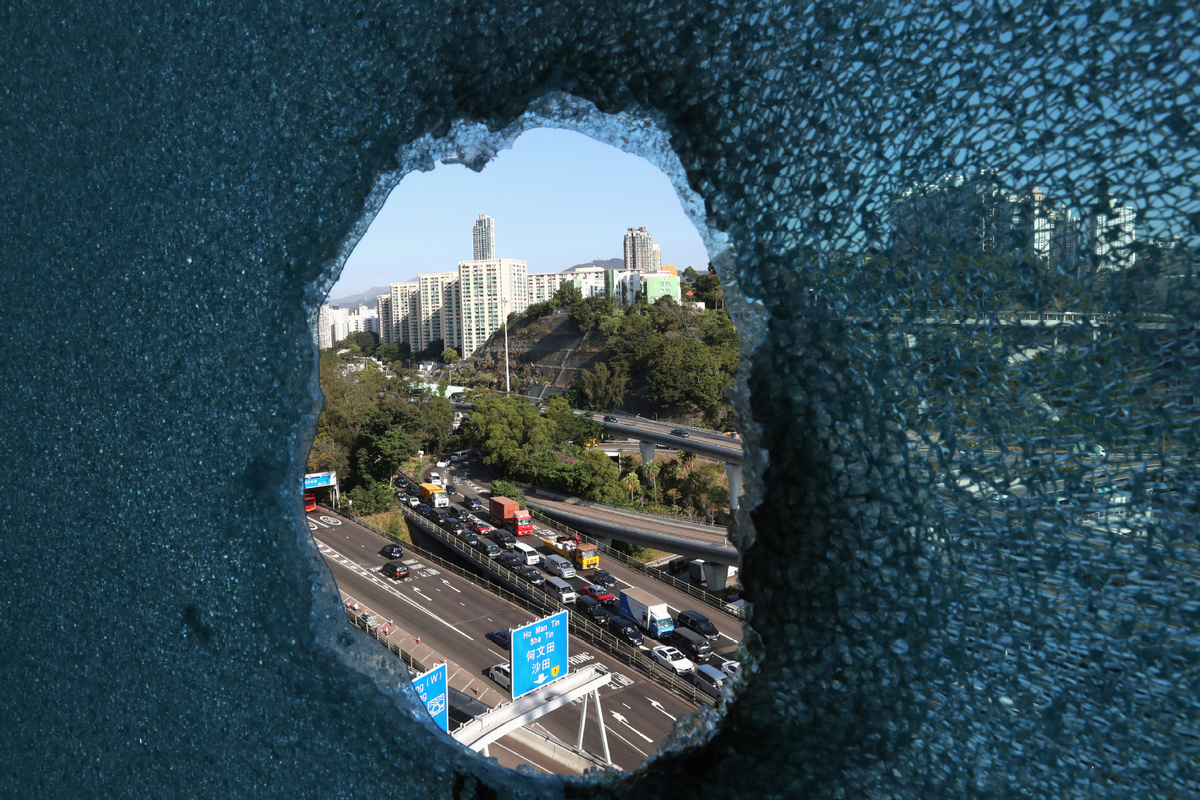New councilors urged to curb violence, improve livelihoods
By Li Bingcun and He Shusi in Hong Kong | China Daily Global | Updated: 2019-11-28 09:15

They must act to benefit Hong Kong's communities or risk losing seats, political observers say
Newly elected district councilors must take a harsher stance against violence and dedicate themselves to the improvement of livelihoods in their communities, or they may lose the public's trust and also their seats, political observers said.
They made the remarks after the city's opposition camp secured majority control of 17 out of 18 districts in Sunday's district council elections. Winning candidates will take office on Jan 1 and serve for four years.
Pro-establishment lawmaker Michael Tien Puk-sun, who lost his bid for reelection in Discovery Park of Tsuen Wan district, said he hopes the councilors-to-be will prioritize the tasks of containing violence and improving people's quality of life in the next four years.
Tien told China Daily on Wednesday that most voters oppose the violent conduct of radical protesters over the past few months. Therefore, quelling violence and restoring order are the most pressing tasks, he said.
To respond to the call of voters, new councilors, regardless of their political stance, must firmly reject violence, Tien said, adding that the public's supervision will help regulate their behavior.
In addition, the new councilors will need to faithfully discharge their duties by benefiting voters through their service, Tien said.
According to Hong Kong's Basic Law, the city's district councils are not an organ of political power. The major functions of district councilors are to advise the government on matters affecting the well-being of the people in the districts, such as improving the environment, organizing community activities and promoting recreational and cultural activities.

Tien said all newly elected councilors, especially some from the opposition camp, who have little experience in community service should be fully aware of their responsibilities and try their best to fulfill them.
Also on Wednesday, pro-establishment legislator Aron Kwok Waikeung, who won a narrow victory in the elections, said he will take on the responsibility of responding to the community's demands on issues affecting people's livelihoods. Kwok is from the Hong Kong Federation of Trade Unions.
He said the political landscape might be completely different after the opposition camp takes majority control of the 18 district councils. He added that under the circumstances, there are growing worries that opposition councilors will overemphasize a political agenda.
To avoid such a situation, Kwok said, the supervision of all pro-establishment councilors as well as every resident is needed. The FTU, a key force of the pro-establishment camp, will proactively communicate with residents and explain their policies and agenda on local affairs, and try to win more support and trust in the future, he added.
Former Hong Kong chief executive Leung Chun-ying also emphasized the oversight role of the public in handling future district affairs.
In a post on social media on Tuesday, Leung called on pro-establishment candidates to buck up from the election setback and quickly adjust to the tasks at hand.
Suggesting that the opposition councilors may play a political card after assuming office, Leung urged pro-establishment politicians to focus on local affairs and livelihood issues as a countermeasure.
He also called on voters to put forth their requests to the newly elected councilors, such as cleaning up political graffiti and responding to deep-rooted problems in individual districts.
What's more, Leung encouraged neighborhoods to keep a close watch on the behavior of new councilors and to report any actions that breach the law.
























